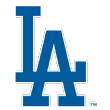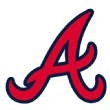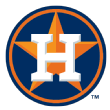We're down to the final four teams in the playoffs and all four have something to prove as we wind down this Major League Baseball season:
• The Los Angeles Dodgers have won eight consecutive National League West Division titles, but they still seek the World Series championship that has eluded them since 1988 -- it has been 13 postseason trips without a title. "It took me six months to recover from last year," manager Dave Roberts said at the start of the postseason. They were the favorite to win it all in March, the favorite in July and remain the favorite.
• This is the Atlanta Braves' 16th trip to the playoffs since winning their lone World Series in 1995, and they believe they should have been in this position last year after losing to the Cardinals. "We all know baseball is a funny game, and they made us wait one more year," said likely National League MVP Freddie Freeman. "That's OK with us. We just know we have a really good team right now."
• The Tampa Bay Rays are the small-market team with the small-market payroll trying to do big things. This is their sixth playoff appearance since 2008, but it's the first time they have reached the American League Championship Series since that first postseason trip that ended in a World Series defeat. "We're a fun team. We play the game right; we pitch very well. They're gonna see a lot of high velo on the radar gun, and they're gonna see a lot of good defense and timely hitting," division series hero Mike Brosseau said in explaining the Rays' success in 2020.
• The Houston Astros, taking on the role of the heel after the offseason cheating scandal that surfaced and stained their 2017 World Series championship, are trying to reach the World Series for the third time in four seasons after finishing under .500 in the regular season. "We know what it feels like, so we want to be able to have that feeling once again," Carlos Correa said after beating the A's. "We're one step closer."
We polled our ESPN baseball writers to re-rank the four teams heading into the league championship series. Here is a quick capsule of where each team stands and then some thoughts and keys to watch in both series.

1. Los Angeles Dodgers
Strengths: Lineup depth, power, starting pitching, overall pitching depth, defense
Weakness: Closer
Look, we know how good the Dodgers are after they went 43-17 in the regular season and now 5-0 in the playoffs. Yes, they caught a couple of breaks so far, as the Brewers were without two of their top four pitchers and the Padres were able to get only one inning from their top two starters. The obvious concern is Kenley Jansen. His velocity is down and he nearly blew a 6-3 lead in Game 2 against the Padres and was pulled after allowing two runs, with Joe Kelly finally getting the save. Dave Roberts knows he has to figure this out.
"There's a threading of the needle and ... I've been very transparent and honest with Kenley and he's just disappointed that he can't figure it out," the manager said on the Mike Golic Jr. and Chiney Ogwumike ESPN radio show on Friday. "We have a lot of people around him that are going to get important outs. I think people get caught up in the title or role of closer. I think when you're talking about the postseason, every out is important. So, whenever I decide to deploy Kenley to get outs, I expect him to be ready and get those outs, and whoever finishes the game, I expect to finish the game. It's going to take all of us to win eight more games."
Sounds as though Roberts is keeping his options open. That could mean Kelly, although he walked the first two batters he faced against the Padres before finally getting the third out. That could mean Dustin May firing 100 mph sinkers in the ninth inning rather than the first inning. That could mean Blake Treinen, who has 3⅓ scoreless innings in the postseason, although he allowed nine runs in 10⅔ innings in September.

2. Tampa Bay Rays
Strengths: Pitching depth, bullpen versatility, power, outfield defense, speed
Weakness: Strikeouts, hitting for average
The Rays have plenty of power pitching, beginning with starters Tyler Glasnow, Blake Snell and Charlie Morton, and then going to the three big arms in the bullpen: Nick Anderson, Diego Castillo and Peter Fairbanks. We already know manager Kevin Cash will deploy those top three relievers at any time, much like he did in the regular season when 12 different relievers picked up saves. Anderson might be the most unhittable reliever in the game right now (although Aaron Judge did touch him for a cheap 340-foot home run in Game 5 of the AL Division Series) and will enter at any time in a big moment. In fact, Fairbanks has the Rays' two postseason saves after not getting one in the regular season, and Castillo pitched the final two innings to get the win in the clincher over the Yankees. The Rays' plan is to get the ball to those three relievers with the lead.

3. Atlanta Braves
Strengths: Offense, power, bullpen depth, top of the rotation
Weakness: Starting pitching depth, bench
The Dodgers and Braves finished 1-2 in the majors in runs, but the pitching stole the show as the Braves swept the Reds and then the Marlins, tossing four shutouts in five games. So it sounds a little weird talking about the starting pitching as the team's potential weakness, but Max Fried and Ian Anderson started four of the five games, and after that things get less sure. Kyle Wright solidified his spot as the No. 3 starter with six scoreless innings against the Marlins, recovering from a shaky start to settle down.
Still, the Dodgers' offense is a big step above the Reds' and Marlins', and the Braves have no good options for the fourth and fifth spots. What they do have, however, is a very deep and impressive bullpen that has allowed one run in 20 innings in the playoffs with a .139 opponents' batting average. No matter who ends up starting Games 4 and 5, manager Brian Snitker will look to the bullpen to carry the load.

4. Houston Astros
Strengths: Lineup heating up, they put the ball in play, starting pitching depth
Weakness: Inexperienced bullpen, bench
After struggling in the regular season on offense -- the Astros fell from first in the majors in wOBA to 18th -- the veteran lineup put it together against Oakland, hitting .322/.388/.594 with 12 home runs in the four-game series. The Astros have been here before, of course, now playing in their fourth straight ALCS, the first team to do that since the 1998-2001 Yankees. The 2011-14 Cardinals did it in the National League, and the Astros are just the fifth team overall to to make the LCS in four or more years in a row. This also is a rematch of last year's division series, which the Astros won in five games -- but with the departed Gerrit Cole winning two of those games. The Astros have five solid starting pitchers and manager Dusty Baker used a couple of them in relief in the first two rounds, but that will be more difficult to pull off in this round.
That will put pressure on the Astros' offense to put up some crooked numbers. They certainly believe the 29-31 regular-season record and subpar offensive numbers were an aberration. "I've played with these guys in my whole career," George Springer said after the Oakland series. "I know what they can do. I've seen it happen day in and day out for six-plus years. And I believe in them. Yeah, sure, we had a little bit of a harder year this year. And I think we expect to play well all the time. And when you don't, it is a little bit hard. But this is a team that believes in one another, sticks together and really, really tries to enjoy the day."
OK, some key elements and storylines to watch:
1. No off days
This will be a huge, huge factor, with the potential of seven games in seven days compared to the usual format of seven games over nine days. In the first two rounds, with the urgency of victory acute in short series, managers tended to go heavy with the bullpens. Check out the average innings pitched for starters in the postseason:
2020: 4.4
2019: 5.1
2018: 4.7
2017: 4.7
2016: 5.1
OK, it's lower, but not THAT much lower. Quick hooks have been a pattern for a long time now. Still, we're seeing a higher percentage of innings coming from relievers than ever before. What made the first two rounds feel so unique, however, was not just the quick trigger on the starters, but the number of bullpen games and openers.
It will be interesting to see if managers can be as creative with no off days. They will have to get a little more from their starters or dig deeper into their bullpens -- although the Dodgers, Braves and Rays all have deep bullpens and remember that the expanded 28-man rosters this postseason allow teams to carry more relievers -- but you won't want to run your best guys out there seven days in a row. Here is the dilemma each skipper faces:
Dodgers: Does Roberts just stick to a straight five-man rotation and trust a bullpen that had a 2.74 ERA in the regular season, or does he use May as a potential ninth-inning weapon? One option is that May could be used in relief in Games 1 and 2 and then start Game 5 as an opener as part of a bullpen game.
Rays: Since Glasnow started Game 5 against the Yankees on Friday, his next start on regular rest wouldn't be until Game 3 -- which means he might get only one start in the series, unless he comes back for Game 7 on short rest. Against the right-handed-heavy lineup of the Astros, look for the Rays to use an opener in Games 4 and 5, with lefty starters Ryan Yarbrough and Josh Fleming serving as the "bulk" guys.
Braves: Who starts Games 4 and 5? Those could also end up being bullpen games. The Braves had seven relievers with a sub-3.00 ERA regular season (small-sample-size alert), plus Will Smith, one of their setup guys. Look for Tyler Matzek to be a key reliever here. Fellow reliever Darren O'Day calls him the "Death Star" because he's the Braves' secret weapon who destroys everything out of the pen. He fanned 43 in 29 innings and allowed just one home run and has eight K's in 3⅓ innings in the playoffs.
Astros: Baker used Framber Valdez and Cristian Javier out of the pen, but Valdez is now the Game 1 starter. The Astros have the weakest bullpen of the four teams, so if he wants to keep Javier in relief, that would mean going with Valdez, Lance McCullers Jr. and the Game 3 starter (probably Zack Greinke) on short rest if the series goes long.
2. Home runs ... or home runs
There have been 93 home runs this postseason in 33 games -- almost three per game. That rate of 1.41 per team per exceeds the regular-season average of 1.28. So if you feel as though you're seeing a lot of home runs, you are. (Teams averaged 1.28 home runs per game last postseason.)
How important is hitting home runs? The team hitting more home runs in a game this postseason is 22-1. Last year, the team with more home runs went 27-6. When you see those numbers, and with the universal designated hitter now in play, it's not surprising to learn there have been ZERO sacrifice bunts this postseason. Of course, the sacrifice bunt has been on its way to oblivion. Average sacrifices per game in the postseason:
1970s: 0.44
1980s: 0.41
1990s: 0.40
2000s: 0.42
2010-2014: 0.34
2015-2018: 0.21
2019: 0.18
Of the 13 successful sacrifice bunts last postseason, seven came from pitchers and five of the six position-player sacrifices came from the World Series champion Nationals. Anyway, we can also count the number of hit-and-run plays on one hand, and there have been just 23 stolen bases, so if you're thinking you're watching a one-dimensional power baseball, you are correct. Indeed, the ratio of home runs to stolen bases in the postseason has predictably declined:
2020: 93 to 23 (4.04)
2015: 91 to 46 (1.98)
2010: 58 to 41 (1.41)
2005: 60 to 37 (1.62)
2000: 45 to 34 (1.32)
1995: 79 to 59 (1.34)
1990: 14 to 31 (0.45)
This doesn't mean manufacturing runs with singles and doubles and going from first to third on base hits (the Rays do that better than the other teams) isn't important, but it is home runs that are necessary. Hit 'em and hope your pitchers prevent 'em.
3. Braves' offense vs. Dodgers' offense
The Dodgers led the majors with 5.82 runs per game, while the Braves were second at 5.80. Freeman, Marcell Ozuna and Ronald Acuna Jr. ranked 2-3-6 in the majors in wOBA. Corey Seager (17th) and Mookie Betts (21st) led the balanced Dodgers attack, although catcher Will Smith outpaced both of them but lacked enough qualifying appearances. Smith is also coming off a five-hit game in the clincher against San Diego. The teams also ranked 1-2 in home runs (Dodgers 118, Braves 103), making this just the fifth playoff series with teams that ranked 1-2 in both runs and home runs:
1926 World Series: Cardinals vs. Yankees
1982 ALCS: Brewers vs. Angels
2017 ALCS: Astros vs. Yankees
2019 ALDS: Yankees vs. Twins
One difference between the two lineups: The Dodgers are very patient in seeking out their pitch, while the Braves are much more aggressive. The Dodgers had the second-lowest chase rate in the majors, but the Braves ranked just 18th. The Braves swung at the first pitch 35.5% of the time -- highest in the majors. Despite the more patient approach, the Dodgers were actually fairly aggressive on the first pitch as well, swinging 30.4% of the time (eighth highest).
"I just think that in the first two series you saw what we're capable of as far as controlling the strike zone," Roberts said. "And I think if you look back at postseasons in the past, we haven't done that very well."
4. Rays' strikeout pitchers vs. Astros' contact hitters
This will be supremely fun to watch. Rays pitchers have the highest strikeout rate of the remaining four teams, but, even as they struggled in the regular season, the Astros had the lowest strikeout rate. They put the ball in play, but that can also be a good thing for pitchers -- as long as those balls in play are turned into outs -- since the Astros had the lowest average pitches per plate appearance.
Of special note is that the Astros usually run out six right-handed batters in their lineup, while the Rays are loaded with right-handed pitching out of the bullpen. Those top three guys -- Anderson, Castillo and Fairbanks -- are all right-handed. They can all go more than three outs. Indeed, in Game 5 against the Yankees, the Rays became just the second team to win a nine-inning playoff game with four different pitchers throwing at least two innings. The Astros are going to see a lot of those three relievers in this series.
5. Defense still matters
Even though sometimes it seems as though all we see are home runs and strikeouts, defense remains vital. Just ask Fernando Tatis Jr. about home run robberies or Judge about home run robberies missed. Based on defensive runs saved, the defenses ranked like this in the regular season:
Dodgers: plus-29
Rays: plus-24
Astros: plus-12
Braves: minus-8
By other metrics, the Dodgers don't fare as well. They do have two elite defenders in Betts in right field and Cody Bellinger in center field, but what the Dodgers really do well is positioning. Other teams will often point out how the Dodgers always seems to be in the right place on defense. Indeed, Los Angeles allowed the second-lowest batting average on balls in play at .253 (the MLB average was .292). The Dodgers did shift more than any other team -- 55.8% of the time. The Braves, meanwhile, shifted less often than any other -- just 7.6% of the time.
6. The Andrew Friedman playoffs
One final note. These front offices are all very familiar with each other in some fashion. Friedman, the Dodgers' president of baseball operations, was the Rays' general manager from 2006 through 2014. Current Rays GM Erik Neander worked under Friedman before becoming GM for the 2017 season. Astros first-year GM James Click came over from the Rays, where he worked under both Friedman and Neander. Braves GM Alex Anthopoulos was the Blue Jays' GM from 2010 through 2015 but then worked under Friedman with the Dodgers for two seasons before going to Atlanta. So if you miss bunting, blame Andrew Friedman.
